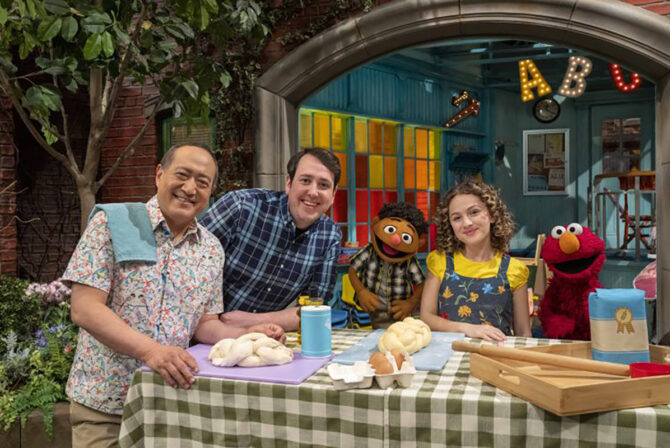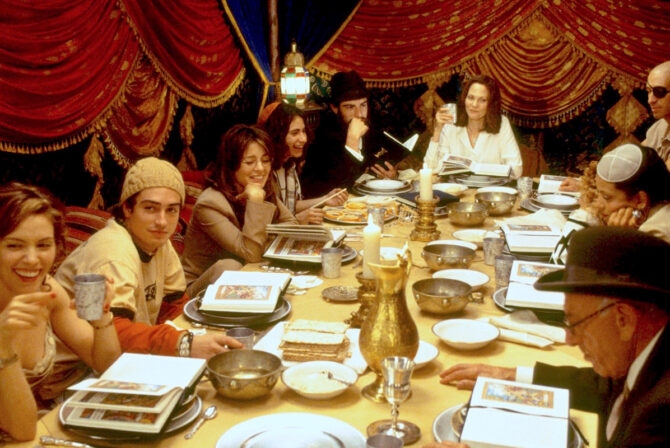We talk about poop a lot in my family. You might think it’s just because we’re the parents of a toddler and an infant, and that’s definitely part of it. But we’re also Jews, so it comes naturally to us.
It’s true. Jews love not only talking about their fecal habits, but also stressing about them. Are we pooping often enough? Too much? There’s even a prayer, the Asher Yatzar, thanking God for the orifices of our body, and expressing gratitude that they open when they should and perhaps more importantly, that they remain closed when they should.
And I don’t think they’re talking about our nostrils. (On a related note, between our two daughters, we’ve had more than our fair share of blow-outs and poo-namis this week. Maybe it’s God’s way of reminding me to say my morning prayers… and not just the ones for coffee and more sleep.)
Bodily Obsessions
When I was young, my mother told me that if I didn’t eat my vegetables, I would get colon cancer. Some kids learn about growing up big and strong, but I was raised with a healthy fear of constipation. Thankfully, my husband understands, and thinks similarly. Since the day our oldest daughter was born and the nurse handed us a form for keeping track of the baby’s BMs, we’ve been just a tad obsessed with the contents of our daughters’ diapers.
We’ve even had an anxious visit to the doctor when things were a bit stopped up. Some latex gloves and a little Vaseline took care of the situation, and oh my goodness, what a situation it was. (Josh and I have often thought we should write a children’s book called Dr. B and the Magic Finger. If there are any publishers out there reading this, feel free to be in touch.)
a little Vaseline took care of the situation, and oh my goodness, what a situation it was. (Josh and I have often thought we should write a children’s book called Dr. B and the Magic Finger. If there are any publishers out there reading this, feel free to be in touch.)
Fortunately, things seem to be moving along nicely since then.
Our big girl just turned 2, and she’s a talker. She talks about everything. All the time. Including her poop. When we’re at home, Josh and I are more than happy to get the latest updates. Unfortunately, Frieda’s verbal nature means that we can no longer share a meal with anyone who isn’t a family member or parent, as almost anyone else would be horrified by Frieda’s frequent announcements of her excretory status (which almost always happen during dinner): “Mommy! I go poopy! Change my diaper! Eeeeeeeeeee!” Fortunately, the hostess at the last restaurant we went to was also a grandmother, and was very sweet when Frieda proudly shared that she “made big poopy”.
The Potty Training Begins
I can’t really blame the kid, though. She comes by it honestly, and Josh and I aren’t helping the situation. Every time my husband changes one of our daughters, he describes it to me, and he expects similar updates when I’m on diaper duty.
Frieda hears us check in with each other about the last time the baby pooped, and whether or not it was substantial enough. Now that we’ve just started working on potty training, we have daily conversations about pooping in the potty, which generally end like this: “No, Mommy, Frieda poopy in her diaper. You change my diaper. We play with baby doll, you put diaper on baby doll. She make poopy, too.” We’re doing a whole lot of talking and not a lot of toileting.
Herein lays the main challenge of potty training my daughters. On the one hand, I know that I need to teach my daughters that there are times when poo-poo proclamations just aren’t acceptable. But I also don’t want them to be ashamed of their body or its productions. I believe that Judaism has something important to teach us about our bodies–that even the most profane aspects of daily life should be acknowledged and appreciated, and that we shouldn’t be embarrassed by our poop.
And perhaps most importantly, poop is just plain funny. (Except, of course, when it’s 2 am and you’re changing a baby who is absolutely covered in it. It’s less funny then). Yet, as Marjorie Ingall observed, “Jews have a fine tradition of scatological humor.” As a Jewish mother, I have a responsibility to maintain that tradition, one which I plan to take very seriously.







